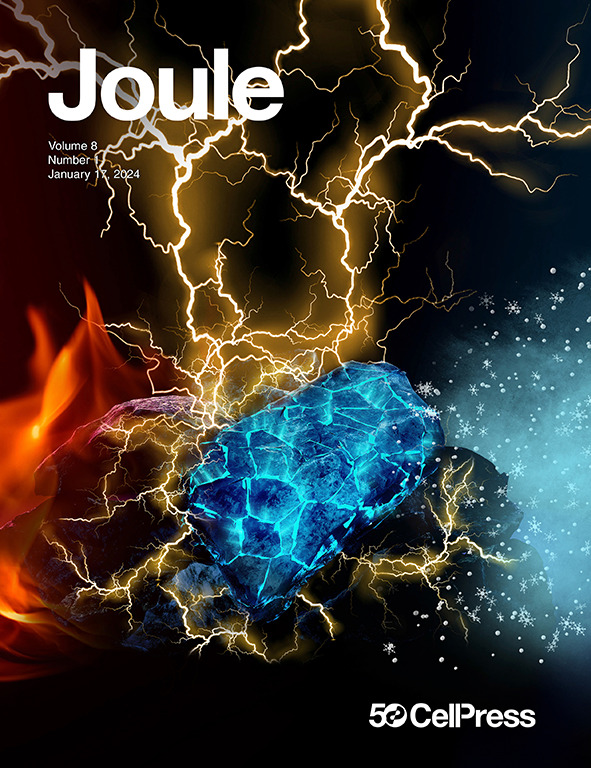气候变化中的跨部门能源系统弹性和相互依赖性
IF 35.4
1区 材料科学
Q1 CHEMISTRY, PHYSICAL
引用次数: 0
摘要
快速的全球电气化正在加深跨部门的相互依存,从根本上重塑能源系统面对日益加剧的极端气候的复原力。虽然能源生产、输电和消费部门之间的整合可以显著提高运营灵活性,但它也会增加极端天气事件下跨部门级联故障的风险,从而导致新兴的弹性悖论,而这一悖论仍未得到充分理解。本研究通过分析全球电气化趋势和德克萨斯州的区域案例,结合全球和缩小尺度的极端气候预测,考察了不断发展的跨部门互动及其对气候适应能力的影响。通过识别与部门相互依赖性增加相关的关键漏洞和灵活性,本研究强调了系统运营商和政策制定者采取以弹性为导向的系统级战略的必要性,以减轻跨部门级联风险,并在不断变化的气候中最大化电气化的效益。本文章由计算机程序翻译,如有差异,请以英文原文为准。
Cross-sector energy system resilience and interdependence in a changing climate
Rapid global electrification is deepening cross-sector interdependence, fundamentally reshaping the resilience of energy systems in the face of intensifying climate extremes. While increased integration across energy generation, transmission, and consumption sectors can significantly enhance operational flexibility, it can also amplify the risk of cross-sector cascading failures under extreme weather events, giving rise to an emerging resilience paradox that remains insufficiently understood. This study examines evolving cross-sector interactions and their implications for climate resilience by analyzing global electrification trends and regional cases in Texas, integrated with global and downscaled projections of climate extremes. By identifying critical vulnerabilities and flexibility associated with increasing sectoral interdependence, this study highlights the necessity of adopting resilience-oriented, system-level strategies for system operators and policymakers to mitigate cross-sector cascading risks and maximize the benefits of electrification in a changing climate.
求助全文
通过发布文献求助,成功后即可免费获取论文全文。
去求助
来源期刊

Joule
Energy-General Energy
CiteScore
53.10
自引率
2.00%
发文量
198
期刊介绍:
Joule is a sister journal to Cell that focuses on research, analysis, and ideas related to sustainable energy. It aims to address the global challenge of the need for more sustainable energy solutions. Joule is a forward-looking journal that bridges disciplines and scales of energy research. It connects researchers and analysts working on scientific, technical, economic, policy, and social challenges related to sustainable energy. The journal covers a wide range of energy research, from fundamental laboratory studies on energy conversion and storage to global-level analysis. Joule aims to highlight and amplify the implications, challenges, and opportunities of novel energy research for different groups in the field.
 求助内容:
求助内容: 应助结果提醒方式:
应助结果提醒方式:


